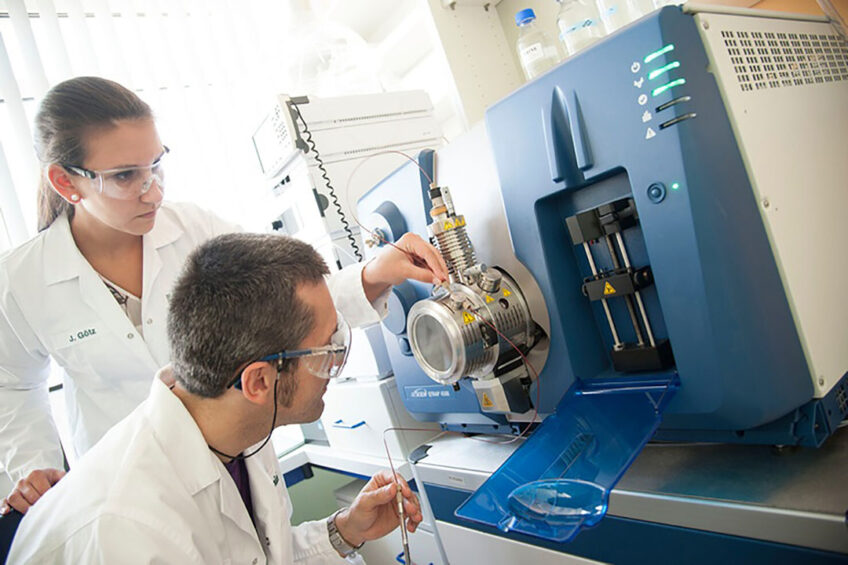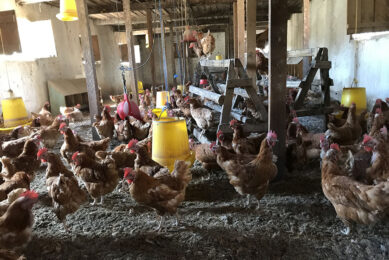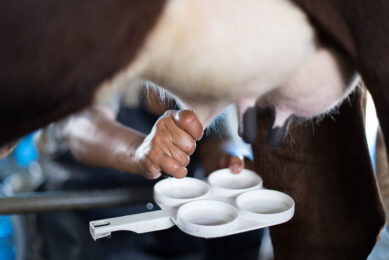Why EU registration matters for mycotoxin deactivation

The EU authorisation of mycotoxin-reducing additives has become an internationally recognised benchmark of quality assurance. For farmers and feed millers, EU authorised products can avoid potential pitfalls while protecting animals and profits.
Animal feed is an integral part of the food chain, as the feed eaten by our livestock will eventually become nutritious eggs, milk or meat for human consumption. The European Union’s farm-to-fork approach strictly controls what can go into animal feed in order to protect animal welfare, consumer health and the environment.
Feed additives have become a crucial part of domesticated animals’ diets, and they must be evaluated and registered before they are authorised to be sold within the EU. The first step towards registration is receiving approval from the European Food Safety Authority (EFSA). This authorisation depends on the objective evaluation of EFSA’s scientific committee about the safety and efficacy of an additive.
2 key advantages of EU authorisation
Products registered in the EU have 2 demonstrable advantages: safety and effectiveness. First and foremost, EFSA confirms that products are safe for animals, their handlers and end consumers. Second, EU-registered products are effective. EFSA validates the claims that feed additive manufacturers are allowed to make about their products within the EU, ensuring that the product can actually do what the manufacturer says. Only claims that have been backed by research published in scientific, peer-reviewed publications are allowed to be advertised, so that purchasers—e.g. feed millers and farmers—are not misled by lofty promises or false claims.
Criteria for mycotoxin deactivators
In 2009 a new functional group called “Substances for reduction of the contamination of feed by mycotoxins” was established within the European Commission Regulation (EC) No 1831/2003. This group contains the substances that can suppress or reduce the absorption, promote the excretion or modify the mode of action of mycotoxins in the animals.
The EFSA Panel on Additives and Products or Substances used in Animal Feed (FEEDAP) requires information from four different categories in order to obtain registration within this functional group:
- Mycotoxin specificity: Target mycotoxin(s) for the product must be declared.
- Species specificity: Data from at least three in vivo studies performed in a minimum of two different locations showing statistically significant effects of its efficacy at the lowest recommended dosage in a specific species.
- Biomarkers: Demonstration of product efficacy must be provided in the form of scientifically recognised relevant biomarkers.
- Safety: Data ruling out the possibilities of interaction with other feed components (such as vitamins, minerals, etc.) should be presented for mycotoxin binders. For mycotoxin deactivators that modify the chemical structure of mycotoxins, the effects of the deactivating substance, as well as the resulting metabolite(s), on the safety of target animals, the consumer and the environment must be presented.
The industry’s certificate of quality
The requirements for EU registration are robust. The number of scientific publications required and the level of collaboration with highly trusted universities and research centres that is needed for EFSA’s approval followed by an EU authorisation has made EU registration a benchmark for product quality in Europe and internationally.
On-farm implications
Potential pitfalls that farmers and feed millers could encounter when applying non-EU registered mycotoxin inhibitors include:
- Ineffectiveness against on-farm mycotoxins: animals are left unprotected
- Uncertainty regarding safety for animals or humans
- Decreased nutritional value of the ration: non-specific binders can bind toxins, nutrients and vitamins
- Nonexistent or negative return on investment due to the factors above
Without an appropriate mycotoxin risk management plan that utilises scientifically proven mycotoxin-inhibiting additives, farmers and feed millers could continue to see mycotoxins negatively impact their operations in the form of lower animal performance and impaired health status along with reduced farm profitability. Applying mycotoxin deactivators that have full EU authorisation and robust scientific backing would ensure that farmers and feed millers avoid these pitfalls.
The only brand with different modes of action registered by EFSA
To date, only 7 additives have been successfully registered as “Substances for reduction of the contamination of feed by mycotoxins” according to the EU authorisation process – and all of them are Biomin products. Though other organisations have begun the registration process, none have successfully met EFSA’s stringent requirements at the time of writing. With a long-standing focus on mycotoxin research, Biomin has developed a dynamic R&D department with more than 100 scientists and more than 200 research partner organisations around the world, as well as its own research centres. The focus on mycotoxin research is the reason why Biomin is the only company with components authorised for the “degradation of mycotoxins”. In addition to the seven already approved additives, a recombinant enzyme that biotransforms zearalenone irreversibly into non-toxic metabolites, has been submitted for authorisation in the EU. This continued commitment to science helps ensure that farmers and feed millers have the tools they need to successfully counter the negative effects of mycotoxins.






